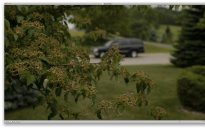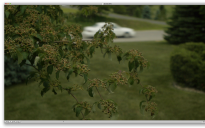
Please, support PV!
It allows to keep PV going, with more focus towards AI, but keeping be one of the few truly independent places.
It allows to keep PV going, with more focus towards AI, but keeping be one of the few truly independent places.
ND filters
-
Want to start topic about choosing and sharing opinions about various ND filters.
Including:
* Cheap screw-in ND filters
* Top screw-in ND filters
* Cokin ND filters (mostly resin)
* 4x4 ND filters
* Variable NDs (or using two polarizers)
Interesting read:
http://www.hurlbutvisuals.com/blog/2010/02/10/filtration-beware-of-the-reaper-of-cheap-glass/
http://www.similaar.com/foto/lenstests/lenstestsn.html
http://www.dimagemaker.com/2008/02/23/using-crossed-polarizers-for-a-variable-nd-filter/
http://www.fxguide.com/fxguidetv/fxguidetv_074/
http://blog.vincentlaforet.com/2010/11/24/fader-filters/
-
Here's a very good test concerning Polarizers. (other interesting tests also)
http://www.lenstip.com/115.1-article-Polarizing_filters_test.html
I'd like to buy some polarizers(linear and/or circular) and have started to do some research on how to lessen the color shift of DIY Variable-ND ( or any Vari-ND for that matter)
No Blue Shift Here: (for a price)
B+W has a Vari-ND out for $579 ($420 on ebay) no thanks...
https://www.schneideroptics.com/ecommerce/CatalogItemDetail.aspx?CID=466&IID=8088
Here's what they say about their Vari:
"This carefully matched set of filters work in combination to produce a density range from 1-1/3 stop loss to 11 stops of light loss. By selecting the best quality materials, Schneider variable ND offer 11stops (ND3.3) attenuation with no blue color shift at maximum density which is a common problem with inferior and unmatched materials common in lesser variable ND filters."
Finding a couple Old, Used, High Quality, Linear Polarizers will better fit my budget.
-
My personal current favourite idea is to use high quality large Marumi NDs and make something to mount them in Cokin P holders.
-
a rotating filter frame, for a more reasonable price than b+w:
http://cgi.ebay.com/Sinar-Rotating-Filter-Holder-w-4x4-Frame-w-6-Rod-/270755475424?pt=Film_Cameras&hash=item3f0a48afe0
he also has a 4x4 polarizer for sale:
http://cgi.ebay.com/4x4-Glass-Polarizing-F-Sinar-Rotating-Filter-Holder-/370513818104?pt=Camera_Filters&hash=item56445831f8
and another from same seller: (with polarizer) (suspect of Tiffen though, from above test site)
http://cgi.ebay.com/Sinar-Rotating-Filter-Holder-w-Tiffen-Polarizing-Rod-/370521803946?pt=Film_Cameras&hash=item5644d20caa -
Great topic Vitaliy.
I recently picked up a Marumi ND8/0.9 screw-in filter from 2Filter.
http://2filter.com/marumi/MarumiNDfilters.html
I'll be doing sharpness and color shift testing this weekend for a variety of focal lengths and will post my results.
Also have a linear polarizer from Marumi on backorder for general use. Stacking two would make a DIY variable option, but I'm worried about color shifts. http://www.2filter.com/marumi/marumicirpolarizers.html (bottom of page)
The Tiffen variable ND looks promising, but supposedly there was a production issue in the first batch. Much cheaper than Singh Ray, but still not nearly as cheap as a DIY option. -
>I'll be doing sharpness and color shift testing this weekend for a variety of focal lengths and will post my results.
I am very interested to see your tests. As this are filters that I am looking at.
-
-
I also have the LCW II in 72mm (B&H was out of 77, or I would have got that. Bigger is better, then use step-up rings.)
I am no professional, but I've seen nothing wrong with the LCW II. It works really well! I put my camera on my indisystems UC rig, with a foam ring in the matte-box that fits snugly around the front element of the fader. turn the filter trays, and voila! . . . the fader turns as well. For stills I also find it invaluable on the M43 lenses. I'm mighty prejudice towards a good manual aperture ring (as opposed to leaving it off and adjusting in-camera), and the fader essentially gives me a physical ring that adjusts the amount of light hitting the sensor (and a smooth ring at that . . . no clicks!). the only way it might be better is if they also made a model with hard stops. IT would not be ideal in all situations, but it would come in handy once in a while. -
I went with the Tiffen Water White IR ND 2.1 from 2filter.com. This filter is new for 2011 and is specially designed for CMOS sensors like the RED and GH2. I see a slight loss of warmth but I consider it quite good for 8 stops of light reduction. Take a look for yourself, the first shot (black SUV) is 1/4000 with No ND, the second shot (white car) is 1/50 with ND. Both ISO 160 f 2.8

 NoND.png1920 x 1200 - 3M
NoND.png1920 x 1200 - 3M
 ND.png1920 x 1200 - 3M
ND.png1920 x 1200 - 3M -
Hi dkitsov,
I am also thinking to go for heliopan, could you please tel us more about it?for instance does it effect sharpnes, or does it create any color cast.
I saw it in the shop, it looks like very well made and very well callibrated, but i find price was bit high for me . So i would like to understand hiw happy you are with it.
Thanks -
I picked up a 72mm fader ND from Nature in Shanghai. www.china-nature.com.cn they can be found pretty cheap on ebay. There is nothing to complain about this fader for me so far. There might be a little loss in sharpness. I use it together with the 14-140 all the time. I'm very satisfied with this product (I have nothing to compare it against though) ...
-
@xsa I am pretty happy with it. It does not seem to affect sharpness as far as the video concerned. It is very well built and while there is a shift in color from no-filter on a lens to Heliopan filter on the lens, there is no shift in color between different degrees of ND. Hope this helps.
-
Do linear polarizers affect the metering or AF? One of the reasons circular polarizers became necessary was because metering systems and AF systems (phase detection) didn't work with a linear polarizer. However, the GH1 uses a contrast detection AF system and metering is different.
-
I use Tiffen HT ND filters. I like the option of being able to use a circular polarizer filter when I want to dial up or down reflections on glass, etc. Fader filters take away that option. They also cause significant softening and color shift to my eye. I've standardized my lenses on 77mm rings so I can switch filters between any. Filters are initially expensive but the will outlast my GH2 by years.
-
Summary of options:
Sorry if this is basic.
Please advise of any mistakes.
1. Coated or Uncoated NDs and Polarizers?
a. Let's not open that can of worms, eh? ... or shall we?
2. Stacking
If we are stacking filters, we'd want to go with the largest filter
we can afford for our choice of lens size
a. to eliminate the need to buy multiple sizes of filters, 'one size fits all' with correct step rings
i.e. use your 77mm filter on a 52mm front threaded lens
b. to eliminate the possibility of vignetting by stacking multiple filters
(unless, of course, you're using your 77mm filters on a 77mm lens, but that means you
purchased those oh-so-inexpensive 82mm filters, right?)
3. Stacking ND filters
a. add number of stops together when stacked
b. image degradation by stacking multiples?
c. Or buy an ND16 instead?
wiki-ped:
stops
ND2 1
ND4 2
ND8 3
ND16 4
ND32 5
ND64 6
ND128 7
ND256 8
ND512 9
ND1024 10
ND2048 11
ND4096 12
ND8192 13
So you'd need to stack an ND2,ND8,and ND16 to match most Dedicated Vari-ND's
at around ND256 (8 Stops)
Is this too many to stack? Seems so.
Anyone have an ND8192 ? :-)
4. Stacking Polarizers (4 to 15 f-stops)
some info: problems of mismatched, cheap polarizers?
http://www.digitalphoton.net/making-a-variable-nd-filter-with-circular-polarizers/
Polarizer Options:
a. (2 circulars, but must reverse the glass on the front circular)
b. (1 circular, 1 linear in front)
c. (2 linears, linears are ok to use on the m4/3 format)
Benefit of having a DIY Vari-ND made from two polarizers,
a. you also have a simple polarizer at your fingertips in addition to the DIY Vari-ND.
b. one fewer thing to carry
c. one less expense
5. Just buy a quality Vari-ND, deal with the color shift with a custom WB and the softness above
200mm
-
Well in my experience if you use good quality water-white filters with multi-coating then you don't get image degradation by stacking multiples. Also, using 77mm filters on 52mm-, 55mm-diameter etc. lenses does not pose problems with vignetting. I'm careful on wider lenses, but typically won't stack as many filters in front of the glass. I have also modified some of my lens adapters to accept up to two filters behind the lens. For this I use cheaper 49mm ND filters. (This is a good way to use filters on wide lenses that do not have threading in front.) If you stack too much glass, you do have to start thinking about slightly changing your backfocus and infinity focus, but that's rarely a problem for me.
Hey, this is just what I do. I get pretty good results for the type of shooting I do. Your needs and results may vary. -
I currently have a Cokin P filter holder, but the filters themselves are terrible. Over on DVXuser, the HiTech NDs seem to be much better for a bit more. But I haven't tried them myself.
@Vitaliy have you used Marumi NDs with the cokin P holder? Seems like they only sell circular style screw on filters...
Thoughts?
Start New Topic


Howdy, Stranger!
It looks like you're new here. If you want to get involved, click one of these buttons!
Categories
- Topics List23,993
- Blog5,725
- General and News1,354
- Hacks and Patches1,153
- ↳ Top Settings33
- ↳ Beginners256
- ↳ Archives402
- ↳ Hacks News and Development56
- Cameras2,368
- ↳ Panasonic995
- ↳ Canon118
- ↳ Sony156
- ↳ Nikon96
- ↳ Pentax and Samsung70
- ↳ Olympus and Fujifilm102
- ↳ Compacts and Camcorders300
- ↳ Smartphones for video97
- ↳ Pro Video Cameras191
- ↳ BlackMagic and other raw cameras116
- Skill1,960
- ↳ Business and distribution66
- ↳ Preparation, scripts and legal38
- ↳ Art149
- ↳ Import, Convert, Exporting291
- ↳ Editors191
- ↳ Effects and stunts115
- ↳ Color grading197
- ↳ Sound and Music280
- ↳ Lighting96
- ↳ Software and storage tips266
- Gear5,420
- ↳ Filters, Adapters, Matte boxes344
- ↳ Lenses1,582
- ↳ Follow focus and gears93
- ↳ Sound499
- ↳ Lighting gear314
- ↳ Camera movement230
- ↳ Gimbals and copters302
- ↳ Rigs and related stuff273
- ↳ Power solutions83
- ↳ Monitors and viewfinders340
- ↳ Tripods and fluid heads139
- ↳ Storage286
- ↳ Computers and studio gear560
- ↳ VR and 3D248
- Showcase1,859
- Marketplace2,834
- Offtopic1,320








